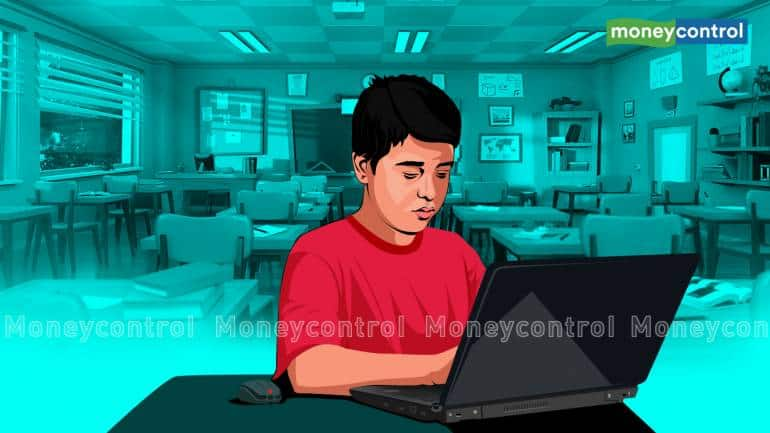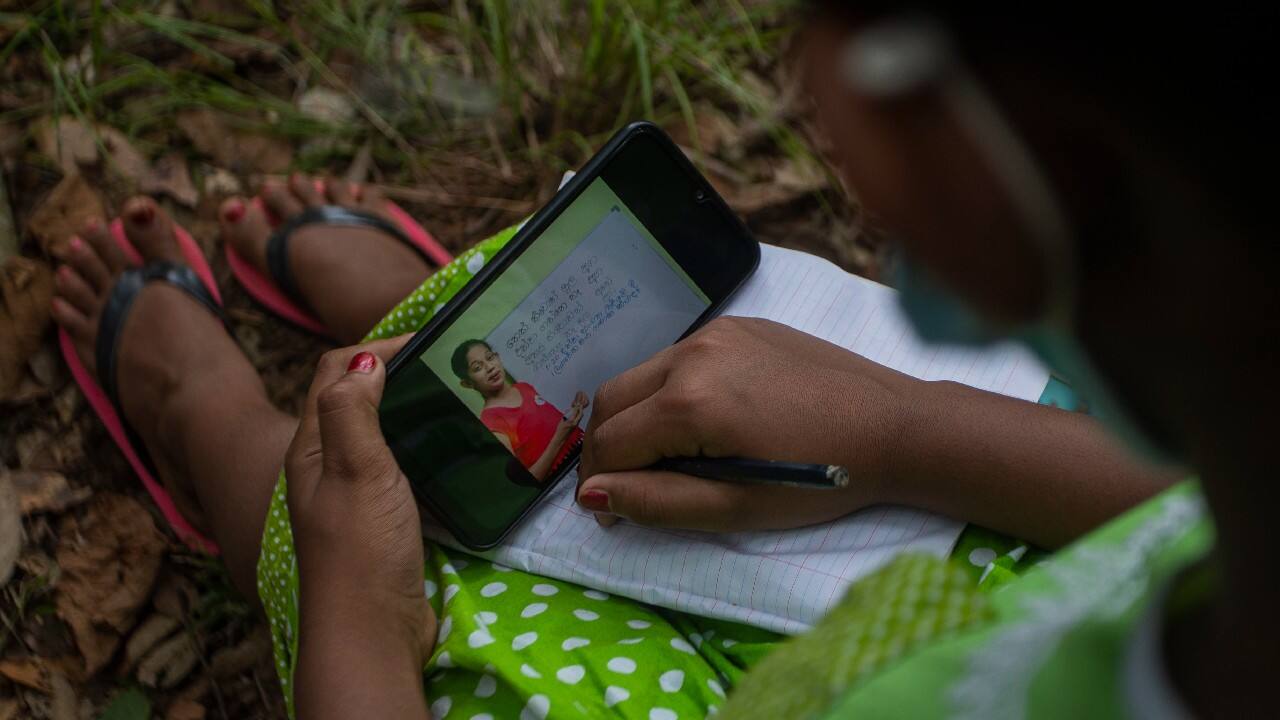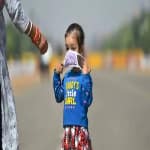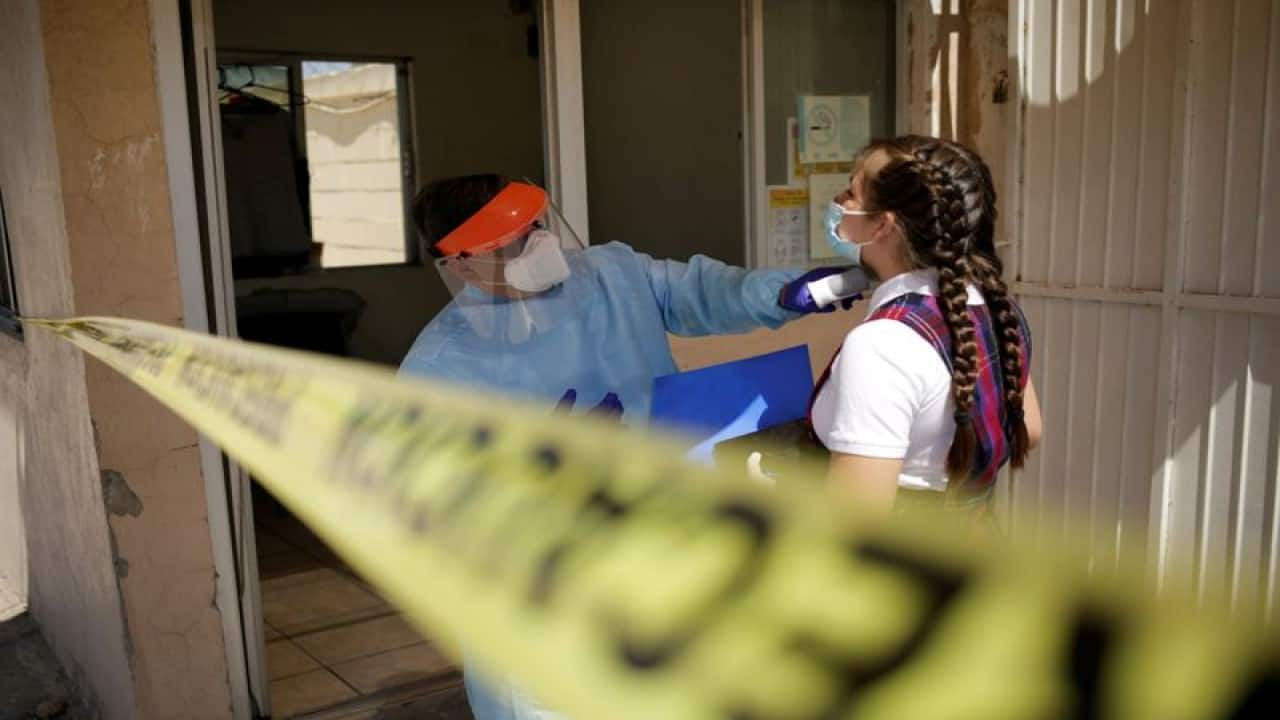
In-depth | To open or not to open: Debates on importance of education vs health grow louder as schools reopen

In-depth | To open or not to open: Debates on importance of education vs health grow louder as schools reopen
Madhu Haldar, a daily wage labourer, lost more than his livelihood during the coronavirus-induced lockdown. His 10-year-old son was studying in a government school in Malda district of West Bengal that offered classes up to the fourth standard. He had dreamt of enrolling him at a private school in Class 5, but that never materialised.
With no online classes or schooling of any kind, Shubhadeep Haldar has lost out on a whole academic year. He is now waiting eagerly for schools to reopen in West Bengal mid-October, hoping to seek admission and make up for the loss.

There are thousands of students across India, who, like Shubhadeep, are keenly waiting for schools to reopen. Spriha Roy, a Class 8 student of a Kolkata-based private school, is among them. She says: “School means both fun and study. I am really looking forward to going back to school, play on the school ground like before, take part in extracurricular activities, and remember what it feels like to sit on long benches with my classmates. Though some of my friends are still wary of attending offline classes due to the COVID-19 scare, I for one cannot wait to go back.”
In several states, such as Delhi, Tamil Nadu, Madhya Pradesh, Haryana, Rajasthan, Assam, Telangana, Karnataka, and Puducherry, schools have already reopened.
Even as students are eager to return to schools after months of closure, it has left their parents a worried lot. On the one hand, they cannot deny the importance of proper schooling instead of relying on online classes. On the other, there is no allaying their concerns over the looming health crisis that might hit India soon in the form of the COVID-19 third wave.
Sudeshna Guhaneogi, an IT professional based in Pune, is still not willing to send her kids to school.
“I believe my children (aged six and 12 years) will be susceptible to getting infected as they are not vaccinated. There is no denying that this hampering their education to some extent, but when it is a trade-off with heath, I choose health first,” she said.
The mother of two, who herself is a COVID-19 survivor, said: “Even if the entire teaching staff is vaccinated, there is no guaranteeing that the family members of the students are vaccinated. Such kids may become silent carriers of the disease and it is near impossible to keep children from mingling with each other. So, waiting out is always the safest option in my opinion.”
She added: “Online education can never match up with physical, offline classes, especially for younger children. But do we really have a choice?”
Once the government completes inoculating 80 percent of India’s population with both doses of the COVID-19 vaccine and the daily cases also stabilise, I may consider sending my children back to school, Guhaneogi said.
Pradnya Gawde, a PR professional based in Mumbai, echoed the same thoughts and said: “I recently gave birth to my second child and am not willing to send my elder daughter to school before she gets vaccinated. Even if there is a vaccination drive that will include four-year-olds, I will be sceptical about getting my daughter vaccinated at go; I am not sure how her body will react to it.”
“As for sending her to school, where is the guarantee she will be able to follow all COVID-19 protocols perfectly. There is no telling who becomes a silent carrier of the disease and in a few cases, we have seen that even the COVID-19 vaccine has failed to provide protection. I am personally not willing to send my kid to school till the disease is completely eradicated.”
Bobby Cox, a 50-year-old BJP State Committee member of the Minority Cell and an educator, who has been conducting soft skill coaching classes online for the past year, is among those who are optimistic about the COVID-19 protocols in place.
He said: “I am in favour of schools reopening for senior students with certain laid out precautions in place. For the rest, waiting till the end of this year might be wise.”
Cox added: “I myself would love to go back to conducting offline classes as the online classes are at best a supplement and not a substitute for real classes in any way.”
However, given that festivities are round the corner, caution must be exercised at every step, lest we unwittingly unleash the third wave of the pandemic, he pointed out.
Ananya Dam, who teaches at an ICSE board school, said: “As a teacher, I find it more enjoyable and easier to conduct regular (offline) classes. It is true that online classes have taught us to innovate in various ways, but, no matter what activities we do, they still lack that human touch.”
“The students are also very eager to come back. But it is not a feasible option yet as we can’t keep track of how they are travelling, whether they are carrying the virus, etc.”
Dam added: “It is important to reopen schools, especially for those in the villages. But the decision should not be rushed at. So, I feel that instead of reopening schools only to shut them down once again, we should wait a little longer, till all the children are vaccinated.”
 Representational Image (AP)
Representational Image (AP)

After reviewing the status of schools reopening across the country with senior officials of the Department of School Education and Literacy, Education Minister Dharmendra Pradhan said: “The government is prioritising vaccinating all teaching and non-teaching staff in schools by September to ensure a safe environment for reopening of schools.”
But the question is, will that be enough?
Dr Abir Mazumdar, who works as a central government district-level public health officer, said: “India is one of the few countries where the school-based in-person educational system has been shut down for so long in the COVID pandemic, resulting in an irrevocable and immense impact on the mental and behavioural health of all children.”
“Also, it is well known through multiple published studies and medical research conducted at national and international level by apex medical bodies that the younger children are the least susceptible to any severe or fatal form of COVID, even without any vaccination. Hence, the lack of COVID-19 vaccination in children as of now should not be the cause for such indefinite hampering of school-based education! However, considering that the children may be carriers for adults and elderly back at home, ensuring faster vaccination for all staff in schools should be of paramount importance for the school authorities.”
“So, ideally, a phased or staggered reopening of schools is the need of the hour, starting with the primary classes and moving on gradually to older children.”
Suneet John, a Medical Officer in the Indian Army, however, strongly advocated against the hasty reopening of schools in India.
He said: “Full reopening of schools and physical learning will pose a massive health threat especially with pockets of resurgence in phases across the country which will prove detrimental to the already exhausted health reserves of our nation. Mass vaccination of both teaching and non-teaching staff and a reassessment of the ventilation, public bathrooms and sanitation existent in our schools is to be carried out before such precipitous actions be implemented.”
And one must note here, that several states have seen a rise in COVID-19 cases among children, shortly after schools reopened. For instance, the infection rate in Punjab grew 9.6 percent between July and August and in the states of Bihar, Madhya Pradesh, Gujarat, and Chhattisgarh, it is growing at two to three percent.


India may see a third wave of COVID-19 peaking between October and November if a more virulent mutant strain emerges by September. However, its intensity is expected to be much lower than the second wave, an IIT-Kanpur scientist Manindra Agrawal, who is involved in the mathematical modelling of the pandemic, has said.
He said if the third wave peaks, India may see only one lakh daily cases as against the more than four lakh daily cases that were reported when the deadly second wave was at its peak in May.
As we can see, by most authoritative estimates, the third wave of COVID-19 will hit India in the coming months. While India still has time to ensure there is no repeat of the nationwide ordeal that the second wave unleashed earlier this year, there is a need to ramp up vaccination drives further.
Besides, we have already learnt how an early relaxation of coronavirus restrictions catalyses the progression of the pandemic. India is already seeing a steady rise in the daily infection numbers, with Kerala reporting more than 30,000 cases daily. To add to the worries, medical experts are now grappling to understand the rapidly evolving strains of SARS-CoV-2 and whether they evade the vaccines administered so far.
Dr Samiran Panda, the Head of Epidemiology and Communicable Diseases at the Indian Council of Medical Research (ICMR) has said: “Several states began imposing COVID-19 restrictions and increased vaccinations, learning from Delhi and Maharashtra. Due to this, the second wave in several states was not as intense, leaving scope for a third wave. Therefore, the increasing number of COVID-19 infections in some states presently is indicating the third wave.”
He has further said that states that were severely affected during the COVID-19 second wave can reopen schools, but the others must do so gradually and with caution.
Adding that it is important to prepare well for the reopening of schools, the health expert said: “The fourth national serosurvey shows that over 50 percent of children are infected, a little less than adults. So, we need not panic unnecessarily.”
 Representational image (Source: Reuters)
Representational image (Source: Reuters)

India has not started vaccinating children yet. As of now, only persons aged 18 years and above are being administered the COVID-19 vaccine.
In an interview with a national news website, All India Institute of Medical Sciences (AIIMS) Director Dr Randeep Guleria said that it will take almost nine months to vaccinate all children in India and suggested against keeping schools shut until then (mid of 2022).
Advocating for the importance of reopening schools, he said physical interaction is important for kids.
Dr Guleria added: “Don’t open schools in Kerala. Open schools in areas like Delhi where the positivity rate is low. Right now is the best time to open schools in Delhi. Many kids do not have the option of availing online education. In terms of the cost-benefit ratio, the benefit of opening schools is high.
Meanwhile, West Bengal Chief Minister Mamata Banerjee has said: “Keeping the third wave in mind, we are now thinking whether children will be required to be vaccinated or not. If required, the government will initiate an inoculation programme similar to the pulse polio drive.”
ICMR’s National Institute of Virology (Pune) director Priya Abraham had said last month: “Hopefully, the results (of the trials for coronavirus vaccine for kids) are going to be available very soon. The results will be presented to the regulators. So, by September or just after it, we may have COVID-19 vaccines for children.”
The Drugs Controller General of India (DCGI) has already given permission to Hyderabad-based Biological E Limited to conduct Phase two and three clinical trials for its anti-COVID shots for children called Corbevax.
Some other vaccines that may be available for kids in India are Bharat Biotech’s Covaxin (for the age group of two to 18), Serum Institute of India’s Covovax (for children aged two to 17 years), Johnson and Johnson’s vaccine for kids aged between 12 years to 17 years, and Zydus Cadila’s needle-free COVID-19 vaccine Zycov-D for children aged 12 to 18 years.
 (Image: AP)
(Image: AP)
The cover image was created by Suneesh Kalarickal.
Read more weekly in-depth articles from Moneycontrol here